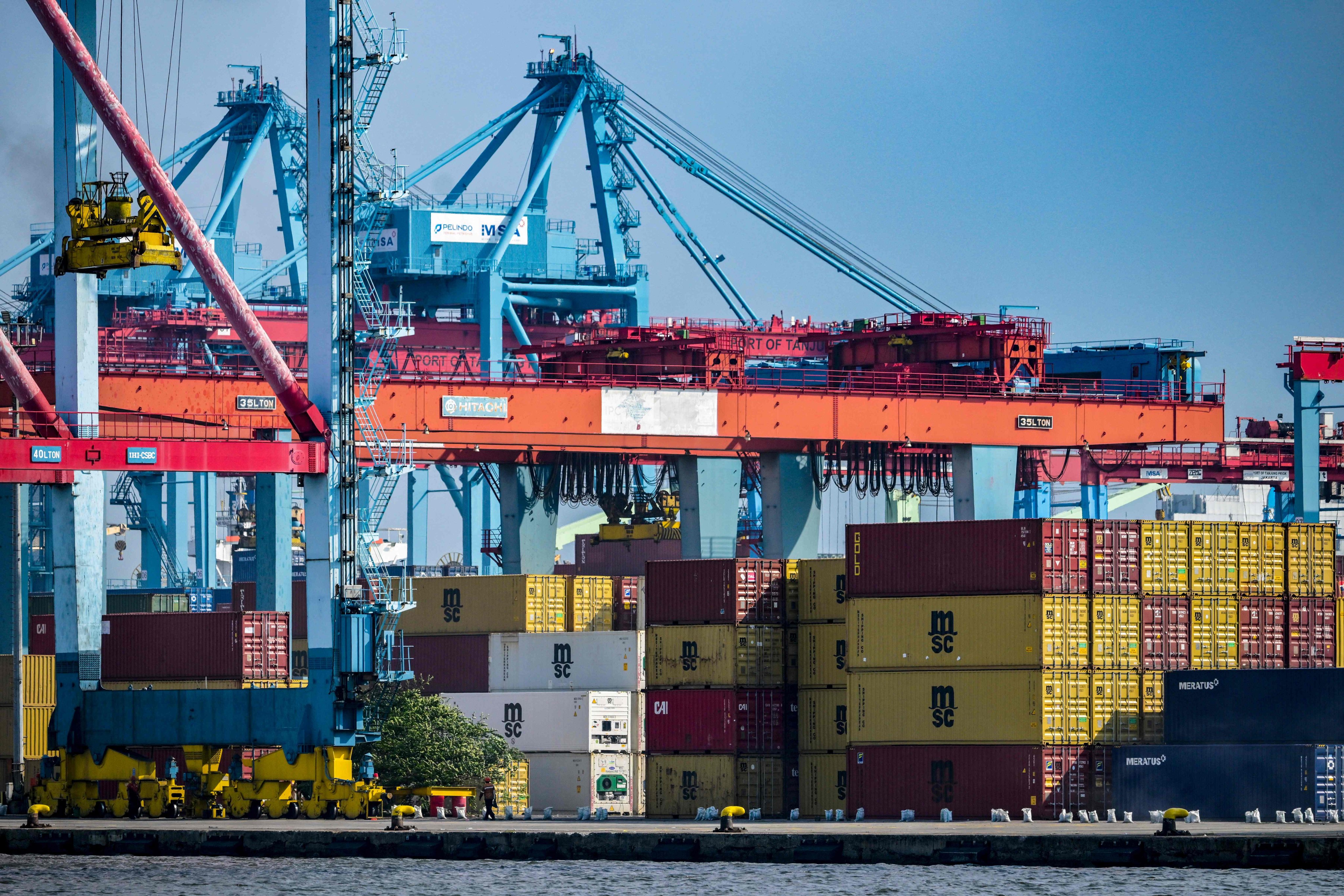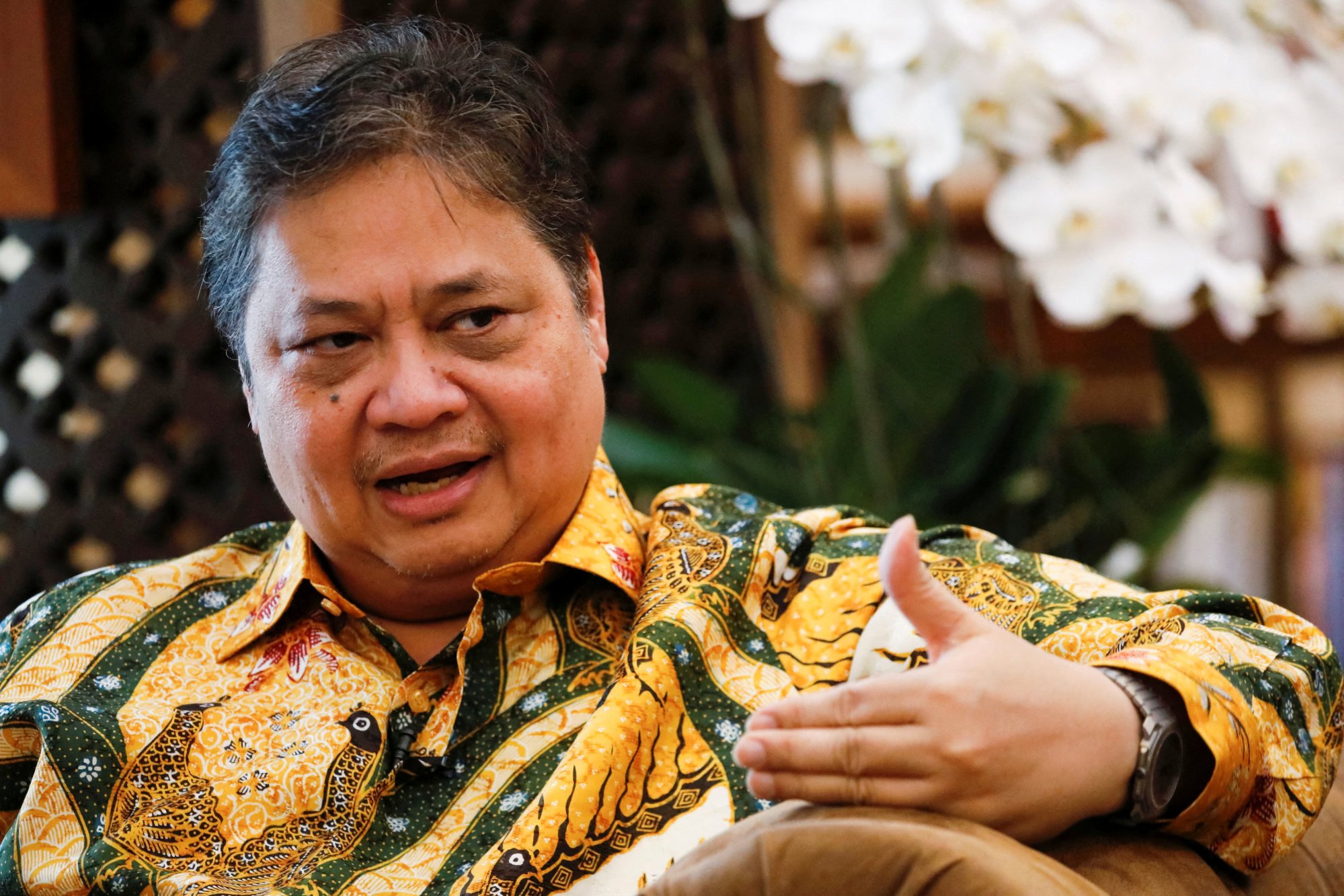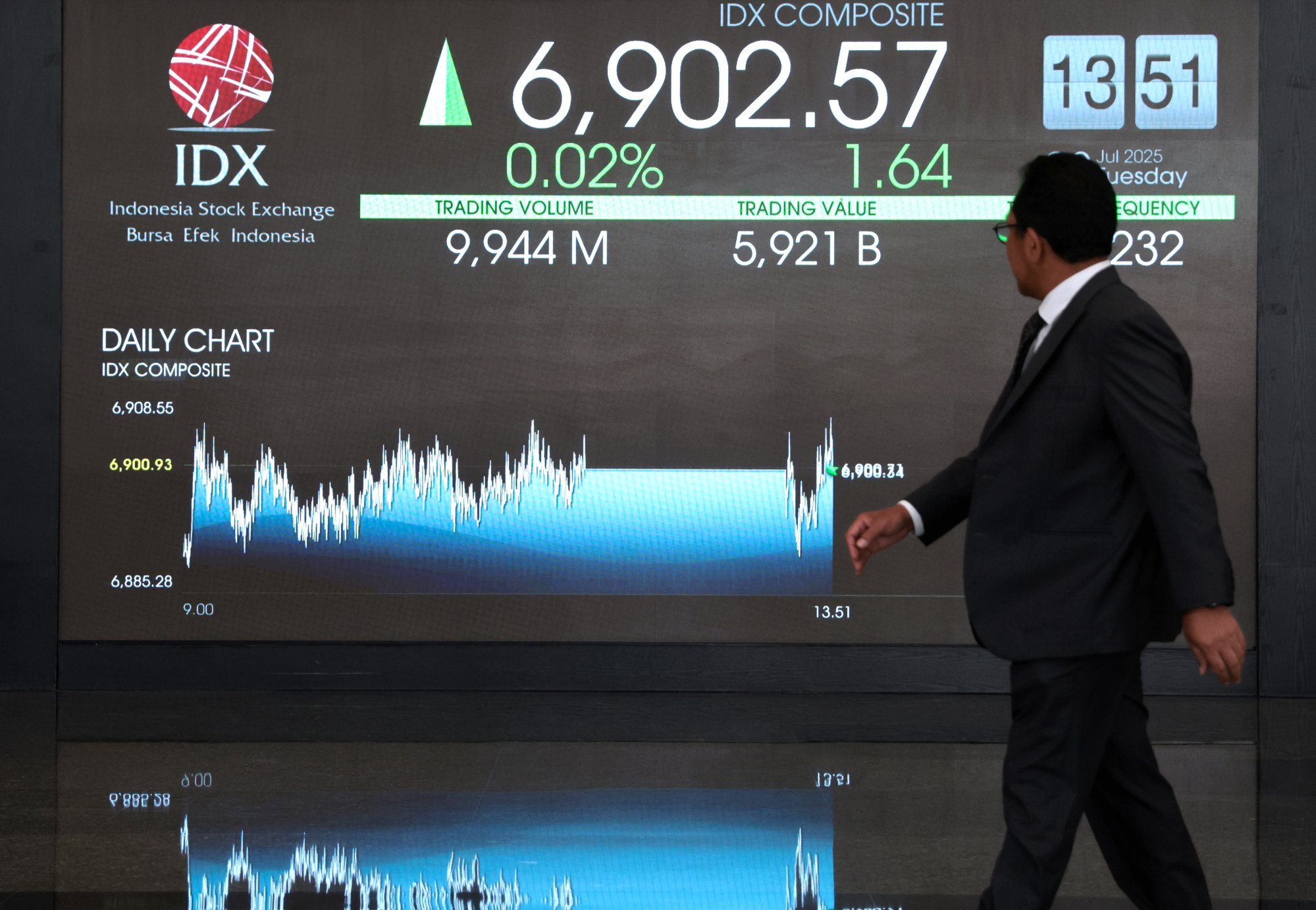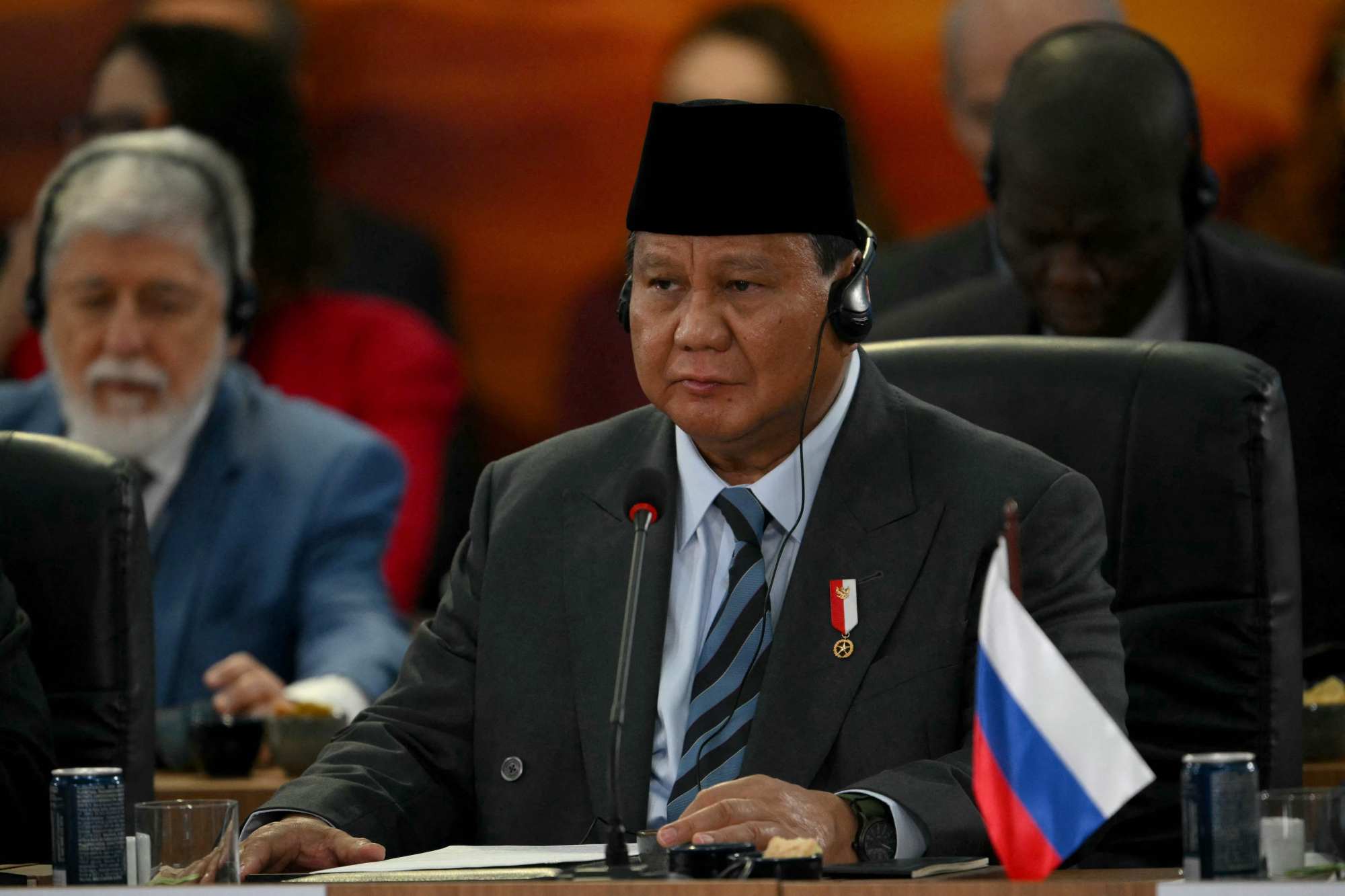‘Very optimistic’: Indonesia vows to press on with US talks despite 32% tariff
Analysts warn the room for negotiation is ‘very narrow’ and Jakarta must have a ‘strong bargaining chip’ to convince Trump

Indonesia has vowed to press on with negotiations despite US President Donald Trump’s decision to maintain 32 per cent tariffs on the country, even as it intensifies diplomatic efforts to seek alternative export markets, including fellow members of the Brics bloc.
The Southeast Asian nation is one of 14 countries notified by Trump via letters on Monday that the unilateral tariffs he announced in April would take effect on August 1.
Trump delayed the levies’ implementation by 90 days to allow time for negotiations, during which time Jakarta sought to meet his demands by pledging to buy up to US$34 billion worth of American goods, easing import procedures and offering cooperation on critical minerals.
Analysts caution, however, that the country likely lacks the leverage needed to move the needle on trade talks with Trump.
Over the past decade, Indonesia has consistently posted trade surpluses with the US – its second-largest export market after China – culminating in a surplus of US$16.84 billion last year.

Jakarta said on Tuesday that it would take up the additional negotiation opportunities mentioned by Trump in his letter.
Coordinating Minister for Economic Affairs Airlangga Hartarto flew directly to Washington from Brazil, where he had accompanied President Prabowo Subianto to the Brics summit, ministry spokesman Haryo Limanseto said on Tuesday.
“Since there is still room to respond, as conveyed by the US government, the Indonesian government will optimise the available opportunities to safeguard national interests in the future,” Haryo said in a statement.
Later on Tuesday, Indonesia’s state energy company, Pertamina, signed a memorandum of understanding to purchase liquefied petroleum gas, petrol and crude oil from the US, Airlangga said. Additionally, Indonesia’s FKS Group and Sorini Agro Asia Corporindo signed an agreement to buy corn from American multinational food corporation Cargill, the minister said.
According to Hasan Nasbi, head of the presidential communications office, Prabowo’s administration “is very optimistic” that negotiations with the US will go well, as the two countries have a good relationship.
Trump has left the door open to reducing the tariffs – but only if Indonesia or its companies establish manufacturing operations within the US. The duties, he said, could also be reassessed depending on the strength of the broader bilateral relationship.
The US president has also threatened an additional 10 per cent tariffs on Brics members, to be imposed only if the countries take “anti-American” policy actions, according to Reuters, citing an unnamed source in Washington.
Brics, a grouping whose initial membership comprised Brazil, Russia, India and China, later expanded to include South Africa and has since added other members including Egypt, Iran and, most recently, Indonesia.

Tough road ahead
Mohammad Faisal, executive director at the Jakarta-based Centre of Reform on Economics (Core) Indonesia think tank, said that while there was room for negotiations, “it’s going to be very tough”.
Unhandled type: inline-plus-widget {“type”:”inline-plus-widget”}
“The problem is how far will we negotiate, and to which key person in the Trump administration? I’m not sure that will change our current position much,” Faisal said.
“If we don’t have a strong bargaining chip to convince the Trump administration, it will be hard to negotiate. We are not China, they have many offers that the US can’t refuse because the US depends on China for many things.”
Rizal Taufikurahman, an economist with the Institute for Development of Economics and Finance (Indef) in Jakarta, also argued that the room for negotiations was “very narrow” for Indonesia.
“Nevertheless, Indonesia’s steps to keep diplomatic channels open are worthy of appreciation, especially if it can seek an exemption scheme or product-specific carve-out, for example through the Generalised System of Preferences (GSP) mechanism or strengthening certain strategic relations,” Rizal said.
The GSP allows duty-free entry into the US for certain products from designated developing countries. Indonesia benefited from GSP from 1980 until the end of 2020.
“However, it must be realised that the US under Trump tends to be reluctant to make concessions unless there is a concrete political, economic or security return,” Rizal said.

For its part, Indonesia has ramped up efforts to seek alternative markets beyond the US, including Brics members and Gulf countries.
During the Brics summit on Sunday, Prabowo expressed his hope that members of the group could “absorb Indonesian products”, Airlangga said.
Prabowo also proposed the South-South Economic Compact initiative, whose aim was to make Brics “the driving force for providing wider [market] access to Global South countries”, Deputy Foreign Minister Arrmanatha Nasir said in a statement.
He likewise called for the conclusion of Indonesia-Gulf Cooperation Council (I-GCC) free-trade agreement talks during his meeting last week with Saudi Crown Prince Mohammed bin Salman, who is also Saudi Arabia’s prime minister.
The I-GCC, officially launched in July last year, could advance trade between Indonesia and the GCC members: Saudi Arabia, the United Arab Emirates, Kuwait, Qatar, Bahrain and Oman.
According to Rizal of Indef, the US “is not easily replaced by Brics” as the former typically buys products from labour-intensive industries, such as textiles, electronics and furniture.
“Brics nations tend to still focus on raw material or inter-commodity trade. However, in the medium term, if Indonesia can develop product diversification and enter the middle-class consumer market in India and China, export potential could increase. For short-term substitution, Brics cannot yet be an equivalent alternative,” Rizal said.
Should Indonesia be able to maximise the free-trade agreement between Asean and China, Brics nations could yet become an alternative market to the US, Faisal of Core Indonesia told This Week in Asia.
“In April, China said that they want to boost domestic consumption to absorb products from within their country and from abroad. This shows that China wants to change its economic structure to be driven by [domestic] consumption. This will be an opportunity for Indonesia to [enter] the Chinese market,” he said.
While expanding trade relations with Brazil could be tricky due to the long distances involved, Russia and South Africa might offer untapped opportunities for Indonesian exporters, Faisal said.
“We must see South Africa not only as an export destination, but as a hub for us to enter other African countries. South Africa is an effective gateway for us to penetrate the African continent,” he said.